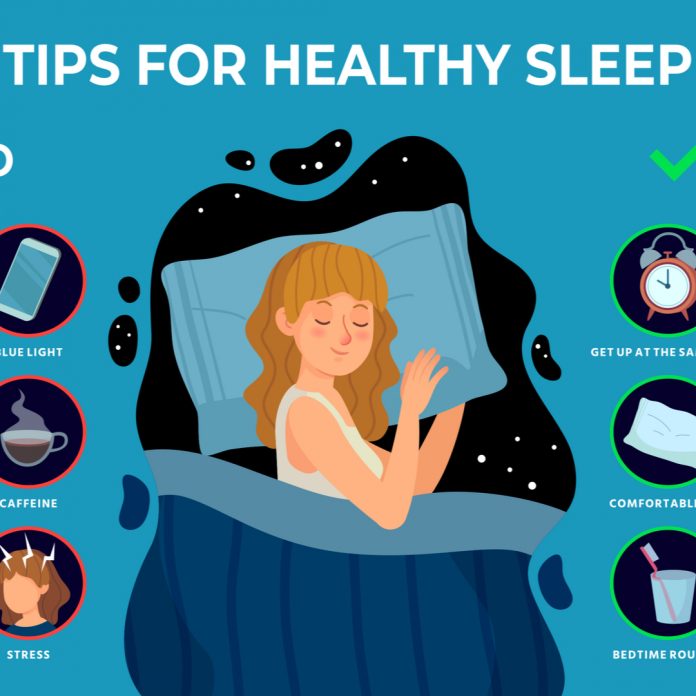Sleep health is essential just as is nutrition and exercise in the package for your well-being.
Despite what you may have heard, there is no “magic number” for the ideal duration of sleep. It varies with individual situations.
However, sleep health is essential just as is nutrition and exercise in the package for good health.
Sleep pays a crucial role in our health and wellness. Quality rather than quantity is key, and getting enough of good quality sleep can be a struggle for many. But it’s worth pursuing the cause for your mental and physical well-being.
So how much zzzs do you need?
Researchers have found that without adequate hours of slumber over many nights, people aren’t as mentally sharp as those who have closer to seven hours; this means, they take longer to perform tasks, make decisions, have a slower reaction time and make more mistakes. This also applies to anyone who feels rested even only after a few hours of shut-eye each night.
So, what can you do if you’re simply not getting enough sleep?
Here are five strategies to revisit if you’ve neglected them:
– Early to bed, early to rise
…definitely makes you healthy and wise!
Go to bed and wake up the same time each day. Be as consistent as you can to keep the same sleep schedule each day; otherwise, your body clock (circadian rhythm) will be out of whack, affecting your quality of sleep. Also, avoid hitting the snooze button on your alarm; it makes the start of your day groggier.
– Dim your bedroom lights
At least an hour before bed, avoid bright, artificial light – especially blue light emitted from your mobile, laptop, iPad and other devices. They send signals to your brain to stay alert. This is one of the main stressors which lead to disrupted and lack of quality sleep.
– Create a bedtime routine or ritual
Call this your unwinding, distressing hour before sleeping. Slow down. Assuming you have eaten two to three hours before your bedtime, avoid doing anything strenuous. Say no to thoughts and situations disturbing to the mind. Save that stressful conversation or topic for the next day. Don’t make the last things that you do before sleeping negative in nature, this will play with your mind and send negative programming to your subconscious which takes over when you sleep.
Some things you can do:
A warm bath- two hours before bedtime. And add a few drops of pure lavender or chamomile oil to you bath water, especially if you’ve had a tough day. You will feel your worries and stress melt away leaving you renewed and calm.
Positive affirmations- these work to calm your brain and re program you subconscious so that you wake up fresh and more positive. Whether a chant, prayer or affirmation – make it a ritual just before you sleep and notice the difference.
Aromatherapy – Pure lavender or chamomile oil rubbed gently around your pulse points helps your brain and muscles relax. You sleep better and feel great the next morning.
Meditation – whether music or chants or deep breathing, meditation is a great way to end your day. It helps you get rid of any negativity you have been holding on to. Clean your slate. Wipe out and let go of situations and conversations that evoked bad feelings within you (your mind). Center yourself. Align your true self with a divine power and feel the calm, love and peace flow through your entire being. You will be blessed with rejuvenating sleep.
Read or pray – or both. If you are reading, again be mindful that you are reading something light or calming for your mind to unwind. Prayers always end your day in a positive way.
Drink a relaxing chamomile or lavender tea- but try not to do this too close to bedtime as you will need to break you slumber to go to the loo!
Bedtime yoga – very gentle asanas do help you sleep better and what better way than Shavasana or Yoga Nidra to lull you into a deep sleep.
A gentle foot sole massage with a relaxing oil – de stresses you almost immediately. Your foot soles mirror your internal organs and spine and brain – so effectively you are giving them all gentle rub down and calming your whole body and mind.
– Set up your bedroom for a good night’s sleep.
Keep your bedroom quiet, cool and dark. This means no TV or devices in the room. If needed, a dim night-light will help you find your way and protect you against tripping and falling in the dark.
– Set up your day for a good night’s sleep.
Spend some time outside when possible, and be physically active. Exercise boosts the effect of natural sleep hormones such as melatonin. A study in the journal Sleep found that postmenopausal women who exercised for about three-and-a-half hours a week had an easier time falling asleep than women who exercised less often. Just watch the timing of your workouts. Exercising too close to bedtime can be stimulating. Morning workouts that expose you to bright daylight will help the natural circadian rhythm.
Avoid caffeine from the early afternoon, as the effects of caffeine can last for up to eight hours.
Napping during the day can help to boost alertness and performance, especially if you are sleep deprived. Usually, no more than 15 – 20 minutes is recommended. However, if you have trouble falling asleep at night, try limiting naps or taking them earlier in the day.
The above tips are simple ways that you’ve probably been following but forgotten about one or two. Incorporate good habits back, to enjoy good sleep that leaves you healthy and happy.



